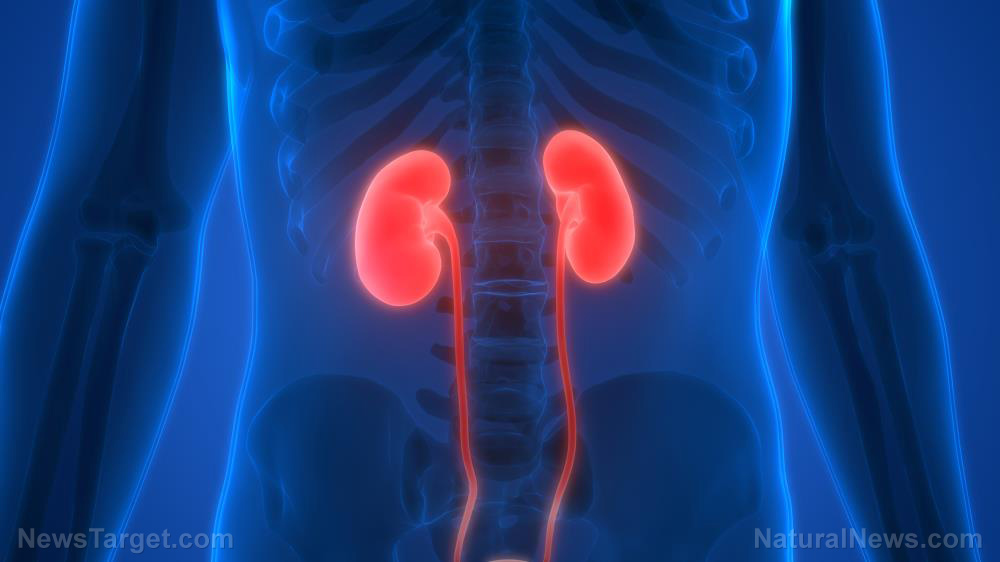How do anti-inflammatory drugs work, and what are their side effects? Researchers study commonly used OTC meds
08/07/2019 / By Ralph Flores

People will often – and readily – resort to taking pain relievers for managing inflammation and low-grade fevers. While many swear by their effectiveness, a recent study notes that people have yet to understand how the drugs work, and more importantly, how they can cause serious side effects for some. Researchers from the University of Jena in Germany, together with collaborators from Harvard Medical School and the Karolinska Institute in Stockholm, looked at the underlying mechanism of pain relievers to find out how they affect the body’s inflammatory response. In the study, which was published in The FASEB Journal, the team identified how ibuprofen and aspirin affect signaling systems within immune cells during an inflammatory reaction.
Pain relievers target substances involved in pro- and anti-inflammatory activities
For this study, the team investigated the body’s inflammation response, classifying it into two successive “phases.” The first one, which they dubbed the initial phase, is where type ‘M1’ immune cells – also known as M1 macrophages – are active. During this phase, M1 immune cells produce pro-inflammatory substances like prostaglandins and leukotrienes. These substances trigger the usual symptoms, including fever and pain. After a few days, the body switches to the second phase, wherein M2 macrophages become active, producing inflammation-resolving mediators (called resolvins) to terminate the process and promote tissue repair.
For their study, the researchers used a newly developed cell model with very high sensitivity, which allowed them to investigate the efficacy of drugs in the first and second phases of inflammation.
“For this purpose, we use human immune cells (M1 and M2), which we pre-treat with the drug to be tested before inducing an inflammatory reaction using pathogenic bacteria,” said Jana Gerstmeier, one of the authors of the study.
Gerstmeier and her team then studied the messenger substances released by immune cells and gained insight on how NSAIDs can affect the ability of M1 and M2 macrophages to produce pro-inflammatory substances and inflammation-resolving mediators, respectively.
Pain relievers like ibuprofen and aspirin belong to a class of drugs called nonsteroidal anti-inflammatory drugs (NSAIDs). NSAIDs target enzymes that help with the formation of pro-inflammatory compounds, alleviating the symptoms of the initial stage of inflammation. However, the researchers also found that they interfere with the second phase of inflammation – the part where the body starts doing tissue repair.
“Conventional drugs intervene equally in both phases,” explained Gerstmeier. “They reduce the production of both pro-inflammatory messenger substances and inflammation-resolving mediators.”
Non-inflammatory drugs should, ideally, be able to interfere only with the first phase and reduce inflammation. They do not need to impair the process that occurs in the second phase, which resolves the inflammation.
NSAIDs increase the risk of heart disease
NSAIDs are among the most widely used drugs in the world. Aside from treating pain, these are also used for managing other conditions, like muscle cramps, osteoarthritis, and gout-related pain. Currently, over-the-counter NSAIDs include aspirin, ibuprofen, and naproxen.
In 2005, the Food and Drug Administration released a warning on the dangers of taking NSAIDs, especially naproxen and ibuprofen, as they can elevate blood pressure and cause heart failure. This was brought to light thanks to the NSAID rofecoxib, which caused 140,000 heart attacks in the U.S. during the five years that it was sold. Natural News covered this particular risk and explained how NSAIDs increase a person’s risk of having a heart attack within a week of use.
While most doctors advise limiting NSAIDs to short-term use, a great alternative to avoid NSAID use entirely is ginger water. Many studies have shown that ginger water can relieve pain and works just like NSAIDs, minus the adverse effects.
Sources include:
Tagged Under: anti-inflammatory, Aspirin, Big Pharma, dangerous drugs, drugs, ginger water, harmful medicine, heart attack, heart disease, heart health, Ibuprofen, inflammation, macrophages, naproxen, NSAIDs, pain reliever, Prescription drugs, remedies, research
RECENT NEWS & ARTICLES
COPYRIGHT © 2017 BIG PHARMA NEWS



















